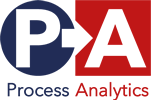 Two of the most important parts of a hospital are the Emergency room and the Operating room. HagaZiekenhuis deals with tens of thousands of patients every year. For each patient, everything is recorded in the Electronic Patient Record (Chipsoft Hix). Exploring the data recorded by both areas of the hospital opens the possibilities to understand the processes around them, to identify/classify efficient aspects, and to find new ways to make things even more efficient/valuable. The students involved in these projects will be able to implement the results achieved whenever possible. Furthermore, the students should be able to communicate/discuss the achieved results with medical specialists, management and Executive Board of the institution. In short, it is expected for these projects to make impact! And perhaps they are the nicest graduation projects that you can find …
Two of the most important parts of a hospital are the Emergency room and the Operating room. HagaZiekenhuis deals with tens of thousands of patients every year. For each patient, everything is recorded in the Electronic Patient Record (Chipsoft Hix). Exploring the data recorded by both areas of the hospital opens the possibilities to understand the processes around them, to identify/classify efficient aspects, and to find new ways to make things even more efficient/valuable. The students involved in these projects will be able to implement the results achieved whenever possible. Furthermore, the students should be able to communicate/discuss the achieved results with medical specialists, management and Executive Board of the institution. In short, it is expected for these projects to make impact! And perhaps they are the nicest graduation projects that you can find …
HagaZiekenhuis
HagaZiekenhuis offers top clinical care to residents of The Hague and surrounding area, approximately 300,000 residents. We encourage high quality care, innovation and cooperation. Patient friendliness is always a priority. Employees and patients feel at home. We are constantly innovating the ways our care is provided in order to deliver top quality care both in the medical and nursing fields. We have approximately 350 employees, more than 320 medical specialists and 600 nursing beds. Every year we have approximately 29,000 admissions, we perform more than 46,000 surgeries and we see more than 160,000 patients for the first time in one of our outpatient clinics. Also every year, around 3,000 babies are born with us, from which 1,200 are supported by the family’s own midwife. HagaZiekenhuis offers excellent basic care and distinctive top clinical functions such as Heart and Vascular Centre and children care at Juliana Kinderziekenhuis. Furthermore, the hospital counts with one of the most visited emergency rooms in The Netherlands (50,000 patients per year).
The assignments
Two assignments are available together with HagaZiekenhuis: one for the emergency room and one for the operating room. Both projects can collaborate as parts of the data available have similarities. Below some questions that could be answered in the assignments.
Emergency room:
-
Which factors influence the process performance (time spent at the emergency room)? What are the bottlenecks?
-
Can triage data (investigations, consultations, admission foreseen) speed up the process?
-
What are the causes for delay in the diagnostic process? Can this be improved?
-
Which route does a patient go from emergency room to hospital or operating room and can the process be streamlined?
Operating room:
-
How much work is necessary and what is the involvement of people to get a patient from registration to planning the surgery?
-
Can you quantify the amount of “rework” done? Can you understand when “rework” is needed?
-
Is there significant differences between semi-emergency (e.g. oncological procedures) and fully elective (e.g. joint replacement) surgery planning?
In addition to analyse data, it is also possible to be present in the hospital (both in the operating room and in the emergency room) and talk to involved nurses, specialists and other colleagues. In this way, you not only get a look at the work done but you also reason about how to communicate the results achieved and improvements proposed. In short, you are welcome at HagaZiekenhuis. Hope we will develop a great graduation project.
Requirements:
Students have ideally an intermediary level of Dutch, specially for oral communication. It is still possible that one of students doesn’t speak Dutch, if in close collaboration with the second student.
Contact details:
Renata Medeiros de Carvalho – r.medeiros.de.carvalho@tue.nl
